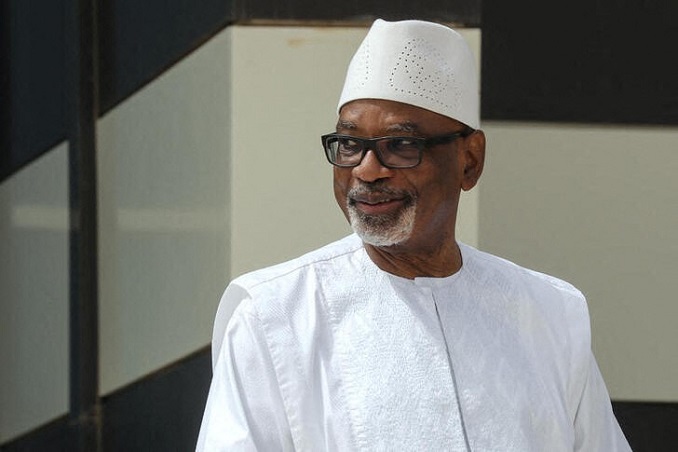Last updated on January 23rd, 2022 at 06:35 am
According to AFP correspondents, Mali paid a final respect to former President Ibrahim Boubacar Keita, who died this week, a year and a half after being overthrown by the military. The junta that succeeded him and is now defying much of the international community held a national burial in a military camp in Bamako, presided over by Choguel Kokalla Maiga, the so-called interim Prime Minister.
Colonel Assimi Gota, one of the leaders of the putsch in 2020 who has since been installed as the transition’s president, was not present. Ibrahim Boubacar Keta, who died at his house on Sunday at the age of 76 after a long absence from public life, was to be buried in the afternoon on his enormous estate following a more public and private service. Almost 2,000 people, including erstwhile foes, rushed to his home to bid him farewell.
Colonel Gota was formally “forbidden” from attending the official ceremony because he had attended the funerals of two other former Malian presidents of state who died in 2020 after the putsch. Many dignitaries, including former interim president Dioncounda Traoré, former ministers, religious authorities, diplomats, and one of the deceased’s sons, Boubacar Keta, gathered in front of the coffin draped in the national flag at the 34th Military Engineering Battalion’s parade ground.
Guinea had despatched its foreign minister, Morissanda Kouyaté, who was also the scene of a putsch in September 2021 and a privileged collaborator of the Malian junta in the face of international criticism. On behalf of the ex-supporters, the president, Baba Hakib Hadara, praised him as “a statesman open to discussion.” He always fought for this nation. He had his strengths and shortcomings,” said his former Minister of Health, Michel Sidibé, “but what characterized him was his dignity and patriotism, and this was mentioned today.”
Related Posts
“He went a little with his sorrows in his heart,” his buddy, the Archbishop of Bamako, Jean Zerbo, remarked, referring to recent West African punitive steps aimed at pressuring the junta to advocate for the restoration of civilians to the helm. The IBK, as he was known, was deposed by the military on August 18, 2020, and now, following a second coup in May 2021, the military is evoking the horrors of the past to justify its refusal to hand over control to civilians in the near future.
The presidency, which began in 2013, has mostly coincided with Mali’s turbulence since 2012, including the emergence of independent and Islamist insurgencies in the north. IBK’s demise had been preceded by months of mobilization among a population fed up with Islamist, sectarian, and criminal violence, as well as the state’s passivity and bankruptcy, and rumored rampant corruption.
“You instilled in me the love of our nation, Mali, which you valued so much and for which you were willing to give everything and forgive everything,” his son Boubacar said. You were a giant Malinke (his ethnic background) with a volcano heart, but you never nursed a grudge and had no idea how to hate. You have a heart of generosity that we didn’t always grasp. Starting Friday, the junta has proclaimed a three-day national mourning period.

